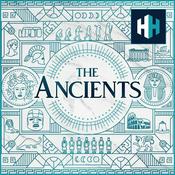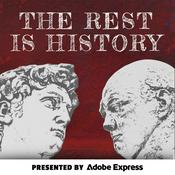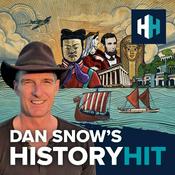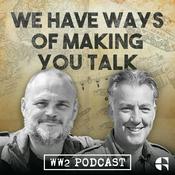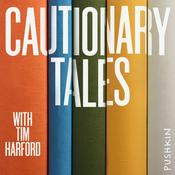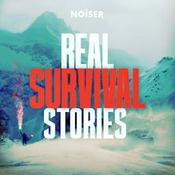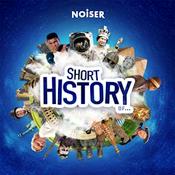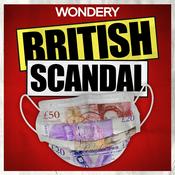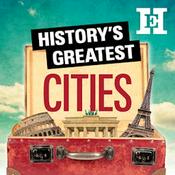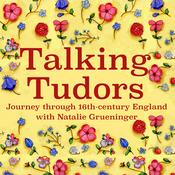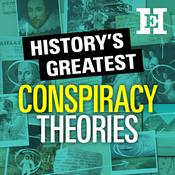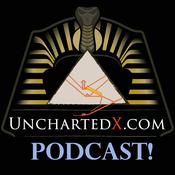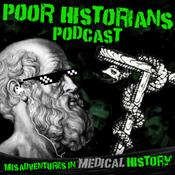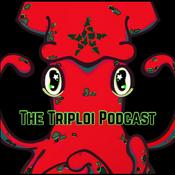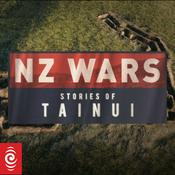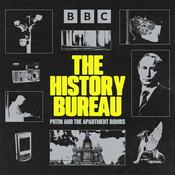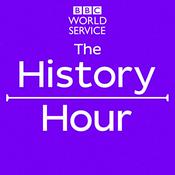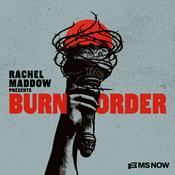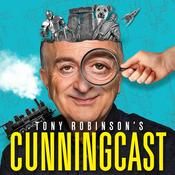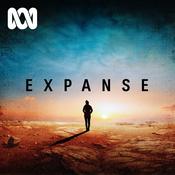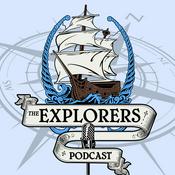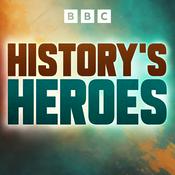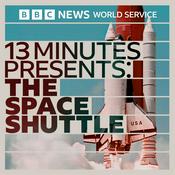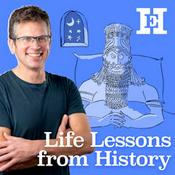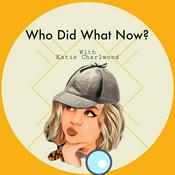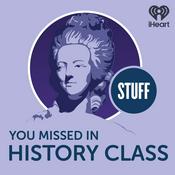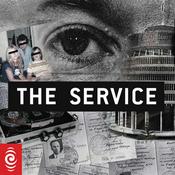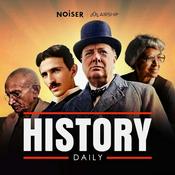104 episodes

Socialism: The Finale – What’s Left?
20/12/2025 | 1h 39 mins.
Welcome to the finale of Origin Story season eight: the story of socialism. Thanks to everybody who has followed our most ambitious season yet, especially those whose support has enabled us to make it. We left the narrative in 1991, with the collapse of the USSR and the so- called “end of history”. This week we’re not telling a new story but looking back on the whole season to reflect on the evolution of socialism over the last two centuries and where it might go from here. We begin by catching up with socialism since 1991, as China embraced “market socialism”, Latin America’s ‘Pink Wave’ rose and fell, and the Western left all but gave up on its dream of building a new economic model. Was the left forced to fight for small victories because the possibility of bringing down capitalism had slipped away? We then return to the beginning of the season and ask if all the most important strands of socialism, from violent revolution to utopian communes, existed in some form by the time Marx and Engels published The Communist Manifesto in 1848. Can socialism be strictly defined or is it a broad tradition encompassing multiple different visions? And how does it relate to communism, left-wing populism or social democracy? We explore some of the obstacles that repeatedly prevent socialists from achieving their goals, including factions, personality cults, cranks, authoritarians and the romance of defeat — most of which were recently illustrated by the fiasco of Your Party. Finally, we take stock of socialism’s achievements, including many of the rights we now take for granted. Has socialism been more successful as a means of critiquing and moderating capitalism than replacing it? So, what is socialism? Can one word really describe Xi Jinping, Kim Jong Un, Zarah Sultana and Zohran Mamdani? How has a creed dedicated to solidarity and collective liberation produced so much rancour and oppression? Why are “temporary” dictatorships never temporary? Is social democracy really socialism? Will we ever see another socialist revolution or will that energy be sucked up by the populist right? And is socialism’s tremendous optimism about human nature both its greatest strength and its greatest flaw? Thanks again for listening to the story of socialism. It’s been a journey. We’ll see you in 2026 for some bonus episodes while we start work on season nine. • Get 25% off our highest tier annual Patreon subscription at https://www.patreon.com/originstorypod/membership • New Origin Story merch! https://podmarket.co.uk/collections/origin-story • Head to nakedwines.co.uk/origin to get a £30 voucher and 6 top-rated wines from our sponsor Naked Wines for £39.99, delivery included. • Use code ORIGINSTORY at the link below to get an exclusive 60% off an annual Incogni plan: https://incogni.com/originstory • Support Origin Story on Patreon • See Origin Story live at the Bloomsbury Theatre on 15th April 2026: https://www.ucl.ac.uk/bloomsbury-theatre/events/2026/apr/origin-story-live • Buy the Origin Stories books on Centrism, Fascism and Conspiracy Theory • Subscribe to Origin Story on YouTube Written and presented by Ian Dunt and Dorian Lynskey. Producer: Simon Williams. Music by Jade Bailey. Art by Jim Parrett. Logo by Mischa Welsh. Group Editor: Andrew Harrison. Origin Story is a Podmasters production Learn more about your ad choices. Visit podcastchoices.com/adchoices

The Fall of the USSR – End Game
17/12/2025 | 1h 34 mins.
Welcome to the penultimate episode of Origin story season eight: the story of socialism. We close the book on Soviet communism with the story of how it all came crashing down — what has been called the most unexpected event of the twentieth century. Mikhail Gorbachev’s desire to change his country was a product of the secret speech in 1956 and the invasion of Czechoslovakia in 1968. As he climbed the ladder to power, he witnessed the Soviet Union flinch from reform and slide into stagnation and decline. So when he became General Secretary of the Communist Party in 1985 he sought to rejuvenate the regime with three audacious innovations: perestroika (restructuring), glasnost (openness) and democratisation. It was a punishing task. Old hardliners in the Politburo thought Gorbachev was too radical while his populist arch-rival Boris Yeltsin thought him not daring enough. Gorbachev wanted to end the Cold War and open his country to the world but he did not foresee the fall of the Berlin Wall and the disintegration of the Warsaw Pact in 1989. He certainly didn’t want the USSR itself to come undone two years later. But the desire for change that he had unleashed could not be tamed. By 1991, Gorbachev was lionised abroad and loathed at home. A failed coup attempt set off a rapid chain of events that ended not just his leadership but the Communist Party and the USSR itself. In trying to save his country, he ended up enabling its destruction. The era of world history that began in 1917 was over. Why did the Soviet Union prove impossible to reform? Did Gorbachev move too fast or too slowly? How significant was his vicious feud with Yeltsin? Did the US bungle the USSR’s transition to a capitalist democracy and misread the collapse of its rival superpower? What did this do to the hopes of socialists around the world? And how do the tumultuous events of 1985-91 still shape the world today? • Get 25% off our highest tier annual Patreon subscription at https://www.patreon.com/originstorypod/membership • New Origin Story merch! https://podmarket.co.uk/collections/origin-story • Head to nakedwines.co.uk/origin to get a £30 voucher and 6 top-rated wines from our sponsor Naked Wines for £39.99, delivery included. • Use code ORIGINSTORY at the link below to get an exclusive 60% off an annual Incogni plan: https://incogni.com/originstory • Support Origin Story on Patreon • See Origin Story live at the Bloomsbury Theatre on 15th April 2026: https://www.ucl.ac.uk/bloomsbury-theatre/events/2026/apr/origin-story-live • Buy the Origin Stories books on Centrism, Fascism and Conspiracy Theory • Subscribe to Origin Story on YouTube Reading list • Sven Beckert – Capitalism: A Global History (2025) • Francis Fukuyama – ‘The End of History?’, The National Interest (Summer 1989) • Anna Funder – Stasiland: Stories from Behind the Berlin Wall (2004) • Masha Gessen – The Future Is History: How Totalitarianism Reclaimed Russia (2017) • Mikhail Gorbachev – Perestroika: New Thinking for Our Country and the World (1987) • Leslie Holmes – Communism: A Very Short Introduction (2009) • Stephen Kotkin – Armageddon Averted: The Soviet Collapse 1970-2000 (2001) • Serhii Plokhy – The Last Empire: The Final Days of the Soviet Union (2014) • Robert Service – Comrades: Communism: A World History (2007) • Tom Stoppard – Rock’n’Roll (2006) • William Taubman – Gorbachev: His Life and Times (2017) • Mikhail Zygar – The Dark Side of the Earth: How the Soviet Union Collapsed but Remained (2025) Written and presented by Ian Dunt and Dorian Lynskey. Producer: Simon Williams. Music by Jade Bailey. Art by Jim Parrett. Logo by Mischa Welsh. Group Editor: Andrew Harrison. Origin Story is a Podmasters production Learn more about your ad choices. Visit podcastchoices.com/adchoices

Che Guevara – Guerrilla in the Mist
10/12/2025 | 1h 32 mins.
Welcome back to Origin Story season eight: The Story of Socialism. This time, we take a look at hands-down the sexiest revolutionary of socialist history: Che Guevara. Born in Argentina to wealthy but unhappy parents, Ernesto Guevara travelled around Latin America during his youth until he met Fidel Castro in Mexico City. From then on his path was set, following the Cuban nationalist leader into a guerilla campaign in the Sierra Maestra and then into government. He concocted a rare form of socialism which combined Maoist peasant rebellion with pan-Latin American nationalism and Jack Kerouac’s drifter idealism. His fame lies not so much in his actions or his thoughts but his image, specifically the iconic Che photograph, taken by Alberto Korda on March 5th 1960. For decades, it has been put up in student bedrooms and raised above protest marches as an encapsulation of youthful idealism, resistance and social justice. We look at the man behind the image and find a strange, intoxicating bundle of seemingly contradictory elements: a poet executioner, a cold-hearted idealist, a sociopath bohemian, and much more besides. • Use code ORIGINSTORY at the link below to get an exclusive 60% off an annual Incogni plan: https://incogni.com/originstory • Head to nakedwines.co.uk/origin to get a £30 voucher and 6 top-rated wines from our sponsor Naked Wines for £39.99, delivery included. • Get 25% off our highest tier annual Patreon subscription at https://www.patreon.com/originstorypod/membership • New Origin Story merch! https://podmarket.co.uk/collections/origin-story • Subscribe to Origin Story on YouTube • See Origin Story live at the Bloomsbury Theatre on 15th April 2026. Reading list Jon Lee Anderson – Che Guevara, a Revolutionary Life Che Guevara – Episodes of the Cuban Revolutionary War, 1956-58 (1963) https://www.marxists.org/archive/guevara/1963/reminiscences/index.htm Che Guevara and Fidel Castro – Socialism and Man in Cuba (1965) https://www.marxists.org/archive/guevara/1965/03/man-socialism.htm Che Guevara – The Motorcycle Diaries Che Guevara – Guerrilla Warfare Mark Kurlansky – 1968: The Year That Rocked the World (2004) Michael Newman – Socialism: A Very Short Introduction (2020) Andrew Sinclair – Che Guevara (1998) FiIm club Evita, directed by Alan Parker The Motorcycle Diaries, directed by Walter Salles Che Part One and Part Two, directed by Steven Soderbergh Written and presented by Ian Dunt and Dorian Lynskey. Producer: Simon Williams. Music by Jade Bailey. Art by Jim Parrett. Logo by Mischa Welsh. Group Editor: Andrew Harrison. Origin Story is a Podmasters production www.podmasters.co.uk Learn more about your ad choices. Visit podcastchoices.com/adchoices

The New Left – Part Two – Children of the Revolution
06/12/2025 | 1h 12 mins.
Welcome to the second episode of the week as we conclude the story of the New Left. In part one, we explained the various groups and thinkersthat fed into the New Left’s attempts to reimagine socialism during the 1960s. It all comes to a head in 1968 with a chain reaction of youth-driven street protests and occupations: Paris, London, New York, Rome, Mexico City, Tokyo. It’s 1848 all over again, only this time its global and its televised, turning leading activists into overnight celebrities. Everywhere, though, these rebellions end in defeat and fragmentation. In its wake, figures as prominent as John Lennon convince themselves that revolution is imminent even as it becomes vanishingly improbable. The New Left splinters in the 1970s. Some “68ers” enter mainstream politics. Others turn to terrorism. A few plunge into the factional jungle of Maoist and Trotskyist sects. But many more redirect their idealism towards new liberation movements: second-wave feminism, gay rights, racial justice, Third World solidarity. We explain how the theories of the Italian Marxist Antonio Gramsci became a lodestar for the left decades after his death — a new approach to changing society. The New Left may have failed to mount a political revolt but it succeeded in redrawing the parameters of socialism beyond class struggle. The left of today is its legacy. Why did the thrilling upheavals of 1968 fall so short? What led so many people to expect a revolution? How did Gramsci become the most important socialist thinker of the modern era? Was toxic disunity inevitable? And how did the New Left ultimately succeed, despite backlashes, setbacks and self-imposed wounds, in changing the world? • Use code ORIGINSTORY at the link below to get an exclusive 60% off an annual Incogni plan: https://incogni.com/originstory • Head to nakedwines.co.uk/origin to get a £30 voucher and 6 top-rated wines from our sponsor Naked Wines for £39.99, delivery included. • Get 25% off our highest tier annual Patreon subscription at https://www.patreon.com/originstorypod/membership • New Origin Story merch! https://podmarket.co.uk/collections/origin-story • Subscribe to Origin Story on YouTube • See Origin Story live at the Bloomsbury Theatre on 15th April 2026. Reading list Histories • Andy Beckett – The Searchers: Five Rebels, Their Dream of a Different Britain, and Their Many Enemies (2024) • Bryan Burrough – Days of Rage: America’s Radical Underground, the FBI, and the Forgotten Age of Revolutionary Violence (2015) • Max Elbaum – Revolution in the Air: Sixties Radicals Turn to Lenin, Mao and Che (2002) • Todd Gitlin – The Sixties: Years of Hope, Days of Rage: Revised Edition (1993) • Vivian Gornick – The Romance of American Communism (1977) • Joachim C. Häberlen – Beauty Is in the Street: Protest and Counter-Culture in Post-War Europe (2023) • Michael Kazin – American Dreamers: How the Left Changed a Nation (2011) • Mark Kurlansky – 1968: The Year That Rocked the World (2004) • Dorian Lynskey – 33 Revolutions Per Minute: A History of Protest Songs (2011) • William L. O’Neill – The New Left: A History (2001) • Rick Perlstein – Nixonland: The Rise of a President and the Fracturing of America (2008) • Terence Renaud – New Lefts: The Making of a Radical Tradition (2021) • Sheila Rowbotham, Lynne Segal and Hilary Wainwright – Beyond the Fragments: Feminism and the Making of Socialism (1979) • Roger Simon – Gramsci’s Political Thought: An Introduction: Third Edition (2015) ... reading list continues on Patreon Written and presented by Ian Dunt and Dorian Lynskey. Producer: Simon Williams. Music by Jade Bailey. Art by Jim Parrett. Logo by Mischa Welsh. Group Editor: Andrew Harrison. Origin Story is a Podmasters production Learn more about your ad choices. Visit podcastchoices.com/adchoices

The New Left – Part One – Generation Next
03/12/2025 | 1h 5 mins.
Welcome back to Origin Story season eight: The Story of Socialism. This time, we’re explaining the New Left, the messy constellation of ideas and movements that came out of the discrediting of Soviet communism 70 years ago and made the left what it is today. The big bang was 1956. Nikita Khrushchev’s secret speech made Stalin’s crimes undeniable while the invasion of Hungary disgraced the new regime too. The first New Left was an intellectual effort by disillusioned British ex-communists to develop a new “socialist humanism”: neither Washington nor Moscow nor mainstream social democracy but a revival of socialism’s highest ideals in the post-war world. The New Left was reborn as an international youth movement in the 1960s as the baby boomers came of age and rallied around new issues: the civil rights movement, the Vietnam war, the end of imperialism and the hollow conformity of the affluent society. From London to Paris and Berkeley to Berlin, students were in the vanguard. “We don’t trust anybody over 30,” they joked, but we take a look at three older thinkers whose ideas shaped the movement. The Frankfurt School philosopher Herbert Marcuse diagnosed the West as rotten and called for a new alliance of outsiders — students, minorities, Third World revolutionaries — to redeem it. The radical French psychiatrist Frantz Fanon sought the decolonisation of not just countries but minds, by any means necessary. And China’s Mao Zedong, the pioneer of guerrilla warfare, positioned himself at the epicentre of the movement for global revolution, even as his own crimes at home rivalled Stalin’s. By the end of 1967, the student movement was turning from protest to resistance, with a view to overturning the whole system, but it was also beginning to splinter. The upheavals of 1968 would be the making, and the breaking, of the New Left. Was the New Left ever a coherent socialist project or just a fragile dissident coalition? How did the first New Left pave the way for the movement that swept the world? What fuelled its accelerating radicalism in the mid-60s? How did students who loathed Stalin end up venerating dictators like Mao and Ho Chi Minh? And in rejecting the fatal errors of the Old Left, did the New Left create their own? For scheduling reasons we’re releasing both parts this week — part two will be with you on Saturday. • Head to nakedwines.co.uk/origin to get a £30 voucher and 6 top-rated wines from our sponsor Naked Wines for £39.99, delivery included. • Use code ORIGINSTORY at the link below to get an exclusive 60% off an annual Incogni plan: https://incogni.com/originstory • Get 25% off our highest tier annual Patreon subscription at https://www.patreon.com/originstorypod/membership • New Origin Story merch! https://podmarket.co.uk/collections/origin-story • Subscribe to Origin Story on YouTube • See Origin Story live at the Bloomsbury Theatre on 15th April 2026. Reading list Histories • David Aaronovitch – Party Animals: My Family and Other Communists (2016) • Bryan Burrough – Days of Rage: America’s Radical Underground, the FBI, and the Forgotten Age of Revolutionary Violence (2015) • David Caute – Fanon (1970) • Max Elbaum – Revolution in the Air: Sixties Radicals Turn to Lenin, Mao and Che (2002) • Todd Gitlin – The Sixties: Years of Hope, Days of Rage: Revised Edition (1993) • Vivian Gornick – The Romance of American Communism (1977) • Joachim C. Häberlen – Beauty Is in the Street: Protest and Counter-Culture in Post-War Europe (2023) • Stuart Jeffries – Grand Hotel Abyss: The Lives of the Frankfurt School (2016) • Michael Kazin – American Dreamers: How the Left Changed a Nation (2011) ... reading list continues on Patreon Written and presented by Ian Dunt and Dorian Lynskey. Producer: Simon Williams. Music by Jade Bailey. Art by Jim Parrett. Logo by Mischa Welsh. Group Editor: Andrew Harrison. Origin Story is a Podmasters production Learn more about your ad choices. Visit podcastchoices.com/adchoices
More History podcasts
Trending History podcasts
About Origin Story
Listen to Origin Story, The Ancients and many other podcasts from around the world with the radio.net app
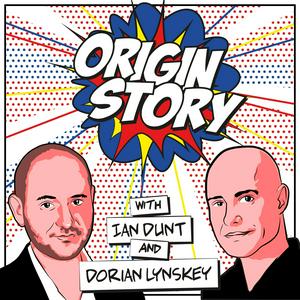
Get the free radio.net app
- Stations and podcasts to bookmark
- Stream via Wi-Fi or Bluetooth
- Supports Carplay & Android Auto
- Many other app features
Get the free radio.net app
- Stations and podcasts to bookmark
- Stream via Wi-Fi or Bluetooth
- Supports Carplay & Android Auto
- Many other app features


Origin Story
download the app,
start listening.
